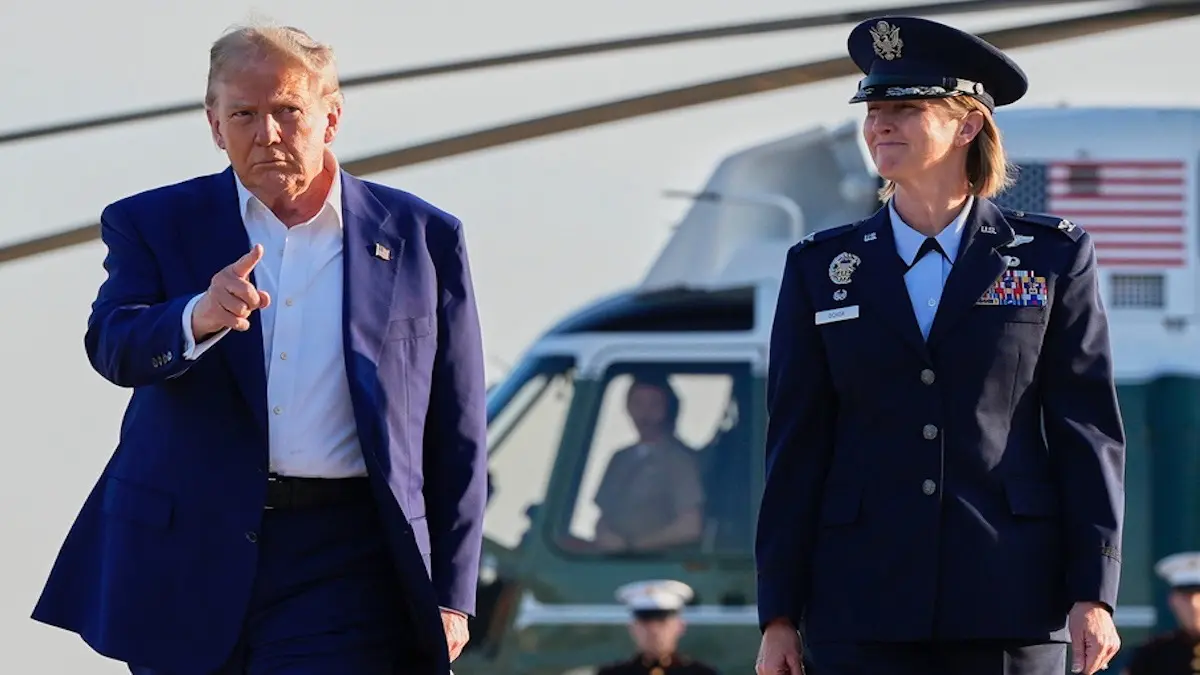Updated 25 June 2025 at 00:09 IST
It Would Take More Than Piecemeal Ceasefires To Make Peace In West Asia
Donald Trump's playbook of premature announcements and B2 bomber strikes cannot tame a region where trust is scarce and motives are complex.
- World News
- 3 min read

On June 23, 2025, at 3:22 AM IST, U.S. President Donald Trump triumphantly announced on Truth Social, “CONGRATULATIONS TO EVERYONE! It has been fully agreed by and between Israel and Iran that there will be a Complete and Total CEASEFIRE.”
He claimed that Israel and Iran had come to him “almost simultaneously” saying, “PEACE!” Yet, just hours later, Iran’s Foreign Minister Seyed Abbas Araghchi rebuffed the claim, stating, “As of now, there is NO ‘agreement’ on any ceasefire or cessation of military operations.”
By 10:38 AM, as Iranian missiles killed five civilians in Beersheba, Trump was forced to tweet again, pleading, “THE CEASEFIRE IS NOW IN EFFECT. PLEASE DO NOT VIOLATE IT!”
This premature declaration echoed Trump’s May 10, 2025, claim of brokering an India-Pakistan ceasefire, which India’s Foreign Secretary Vikram Misri clarified was purely bilateral, with “no U.S. mediation.”
Advertisement
In both cases, Trump’s rush to claim credit unraveled as reality exposed the fragility of his assertions.
Trump’s pattern of overreaching diplomacy has repeatedly faltered. On May 11, he boasted of a “total reset” with China on critical minerals, only for Chinese state media to denounce it as “unilateralism, protectionism, and economic coercion.”
Advertisement
By May 31, Trump accused China of violating the deal, lamenting, “So much for being Mr. NICE GUY!”
Similarly, his May 19 call with Vladimir Putin promised immediate ceasefire talks in Ukraine, but within a week, Russia launched its largest aerial attack yet, prompting Trump to call Putin “absolutely CRAZY!”
His June 11 plea to Israeli Prime Minister Netanyahu to halt Gaza operations and avoid striking Iran went unheeded, as Israel launched Operation Rising Lion on June 13, pulling the U.S. into Operation Midnight Hammer.
Even Trump’s own administration seemed caught off guard, Ambassador Mike Huckabee tweeted at 3 AM, awakened by Trump’s ceasefire announcement, revealing a lack of coordination.
From China to Russia to West Asia, Trump’s diplomatic gambits have consistently crumbled under the weight of miscalculation and bravado.
Trump’s pursuit of a Nobel Peace Prize through high-profile ceasefire announcements has backfired, undermining his candidacy with each misstep.
His premature claims, like the unverified Israel-Iran ceasefire and the debunked India-Pakistan mediation, have fueled skepticism, with Iran’s Foreign Minister Araghchi and India’s Vikram Misri dismissing his role outright.
These half-baked declarations, followed by renewed violence—such as Iran’s missile strikes on Beersheba and U.S. bases—expose a pattern of reckless overreach.
Rather than fostering peace, Trump’s actions escalate tensions, alienating allies and adversaries alike. His insistence on taking credit, even as ceasefires collapse, paints him as a destabilising force, diminishing his credibility on the global stage.
West Asia, with its tangled web of rivalries and unpredictability, dwarfs Trump’s erratic approach to peacemaking. His tweets, from promising “LOVE, PEACE, AND PROSPERITY” to pleading Israel, “DO NOT DROP THOSE BOMBS,” reflect a rogue actor grappling with a region that outmatches him in volatility.
Iran’s missile strikes on U.S. bases in Qatar and Iraq, coupled with Ayatollah Khamenei’s defiant imagery of a burning American flag, underscore the limits of Trump’s coercion tactics.
The IAEA’s Rafael Grossi contradicted Trump’s nuclear weapon claims, noting Iran’s 60% uranium enrichment but denying weapon production.
Even allies like Israel, who coordinated with Trump’s ceasefire proposal, continued bombardments, embarrassing his calls for peace.
Trump’s playbook of premature announcements and B2 bomber strikes cannot tame a region where trust is scarce and motives are complex.
It will take more than tweets and bombs—sustained diplomacy, mutual respect, and credible mediation—to forge lasting peace in West Asia.
Published By : Shashwat Bhandari
Published On: 25 June 2025 at 00:09 IST
